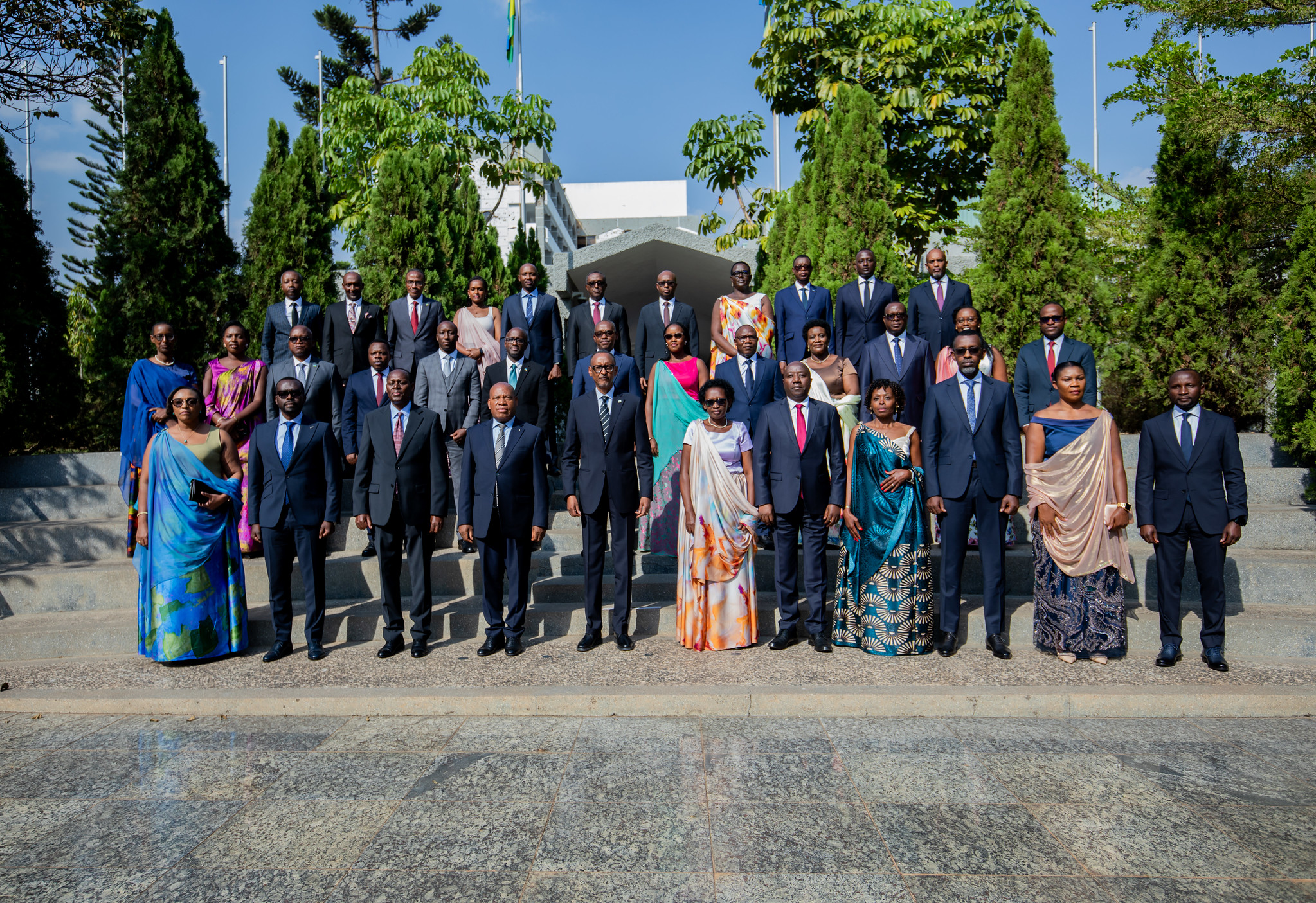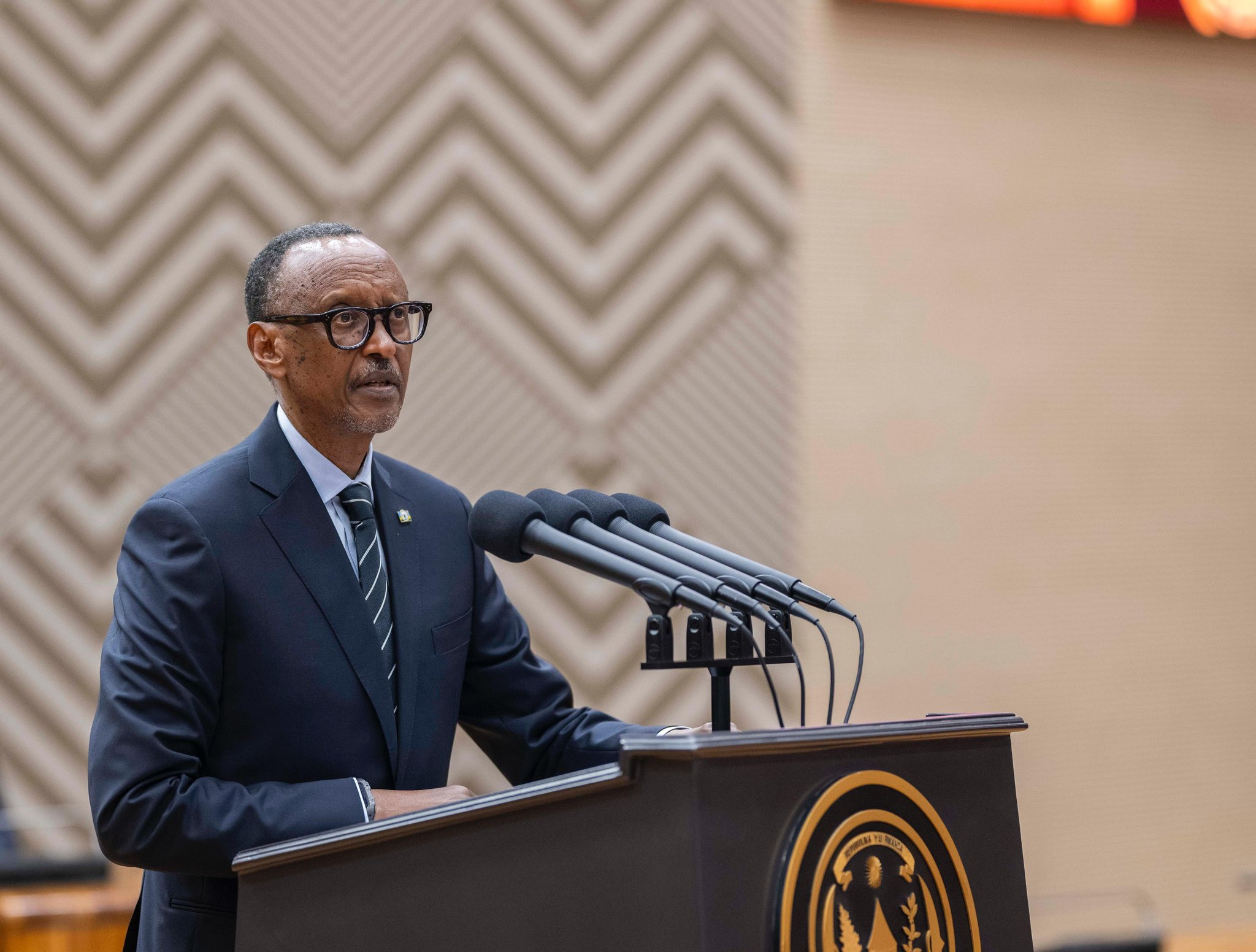President Paul Kagame’s speech during the recent swearing-in ceremony of new cabinet members and other senior government officials was a compelling reflection of his governance philosophy and vision for Rwanda’s future. The address, delivered with characteristic clarity and authority, set the tone for the new administration, emphasizing both continuity and change in leadership approach.
Leadership and Accountability
Kagame’s speech began with emphasis on the weight of leadership responsibilities. He reminded both returning and new cabinet members that their roles involve more than just administrative duties. “Serving at this level is not business as usual,” Kagame stated firmly. “Even if you performed well in the past, you must aim to do even better.” This directive reflects Kagame’s high standards for public service and his belief that leadership should be marked by constant self-improvement and an unyielding pursuit of excellence.
He addressed the recent cabinet changes, including the removal of the Trade and Industry Minister and the Minister of Sports. Kagame clarified that such changes were not arbitrary but rather part of a broader effort to enhance governance. “Dismissal does occur if there is wrongdoing,” he explained. “Those who have been assigned different roles have not been dismissed; their time will come when their work will be recognized.” This comment underscored his administration’s commitment to accountability and the belief that everyone in leadership must adhere to high standards of integrity.
New Leadership in Governance
A key aspect of Kagame’s speech was the introduction of a new CEO for the Rwanda Governance Board (RGB). This appointment is seen as a strategic move to advance the quality of governance and service delivery. “We need a renewed approach to governance and accountability,” Kagame remarked, highlighting the necessity of innovation and improved practices in the RGB’s leadership. This new leadership is expected to drive significant changes in how governance is executed, aiming for greater transparency and efficiency in public service.
Self-Reflection and Personal Accountability
The President’s advice extended to personal introspection and the need for leaders to critically assess their own performance. He emphasized the importance of self-evaluation over external validation. “It is good to hear criticism, but it is also important to self-evaluate without being swayed by what others say,” Kagame noted. This focus on internal self-assessment aligns with his belief that effective leadership involves a deep, personal commitment to improvement and a willingness to correct one’s own shortcomings.
Health and Well-Being
Kagame also touched on the personal well-being of leaders, linking it to their ability to govern effectively. “You need to maintain good health—eat well, exercise, drink less, and take care of yourself and your family,” he advised. This practical advice underscores the idea that a leader’s health directly impacts their effectiveness in office, reflecting Kagame’s holistic approach to leadership that encompasses both personal and professional dimensions.
Regional Security and Tensions with the DRC
A significant portion of Kagame’s speech was devoted to regional security issues, particularly regarding the Democratic Republic of Congo (DRC). He expressed his frustration with President Félix Tshisekedi’s handling of insecurity in eastern DRC, emphasizing that the persistent instability in the region poses a threat to Rwanda. “I have complained over and over about the failure to fix insecurity in eastern DRC and the harboring of elements that aim to destabilize Rwanda,” Kagame stated. He also addressed Tshisekedi’s threats and the ongoing regional tensions, suggesting that these issues have strained relations between the two countries and have broader implications for regional stability.
Kagame’s warnings to Tshisekedi were framed as part of a long-standing pattern of addressing these critical issues. He has repeatedly raised concerns about the DRC’s failure to address the insecurity and its harboring of destabilizing elements. Kagame’s speech reaffirmed his stance that such issues must be tackled with urgency and seriousness, reflecting his broader approach to regional diplomacy and security.
Regulatory Measures and Religious Oversight
Another notable aspect of Kagame’s speech was his criticism of the proliferation of unregulated religious institutions. “Mushrooming churches without oversight cannot be tolerated,” he declared. This comment addressed the need for regulatory measures to prevent exploitation and ensure that religious practices are conducted in a manner that benefits the public good. Kagame’s call for oversight reflects his commitment to ensuring that all sectors, including religious institutions, operate transparently and responsibly.
Younger, Diverse Leadership
The introduction of a youthful cabinet, composed of young men and women with diverse experiences, was also a significant highlight. Kagame framed this new leadership as a strategic choice to bring fresh perspectives and innovative approaches to governance. “This new government brings fresh ideas and vigor,” he noted, emphasizing that the diverse experiences of the new appointees would contribute to a more dynamic and effective administration. This move aligns with Kagame’s vision of a government that is not only youthful but also capable of addressing contemporary challenges with creativity and energy.
Expanding Governance Approaches
Kagame’s speech set the stage for a new approach to governance, characterized by a renewed focus on performance, accountability, and innovation. The emphasis on self-reflection, health, and regulatory oversight, combined with the strategic appointments and the call for a more effective governance framework, signals a deliberate shift towards a more proactive and responsive administration. The new government’s approach aims to address both internal and external challenges with a combination of rigor, creativity, and a commitment to continuous improvement.
Overall, Kagame’s address was a comprehensive and forward-looking articulation of his vision for Rwanda’s future, marked by a blend of strategic insight, practical advice, and a call for unwavering commitment to excellence in leadership and governance.



















